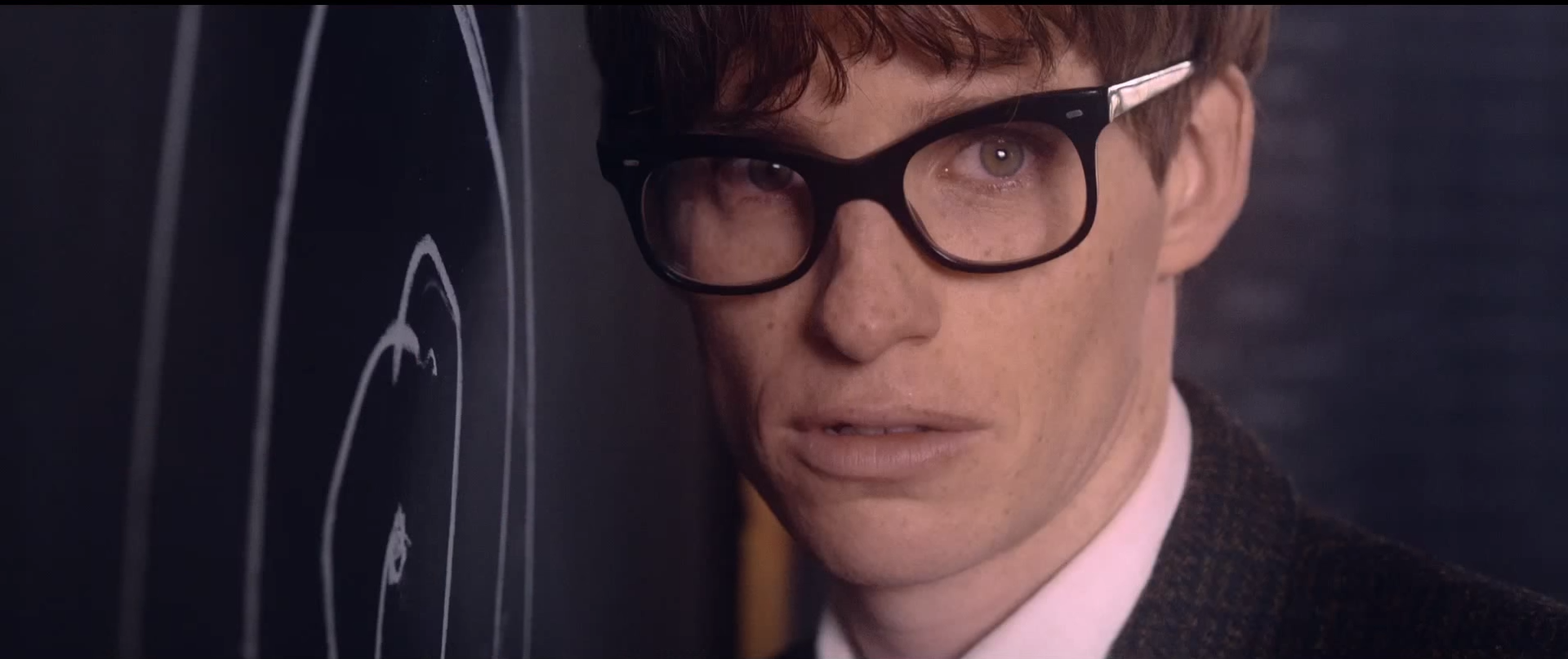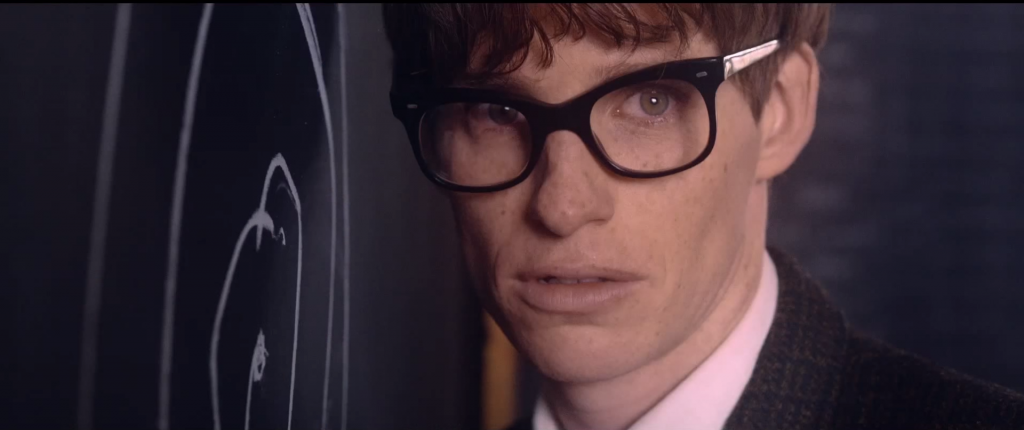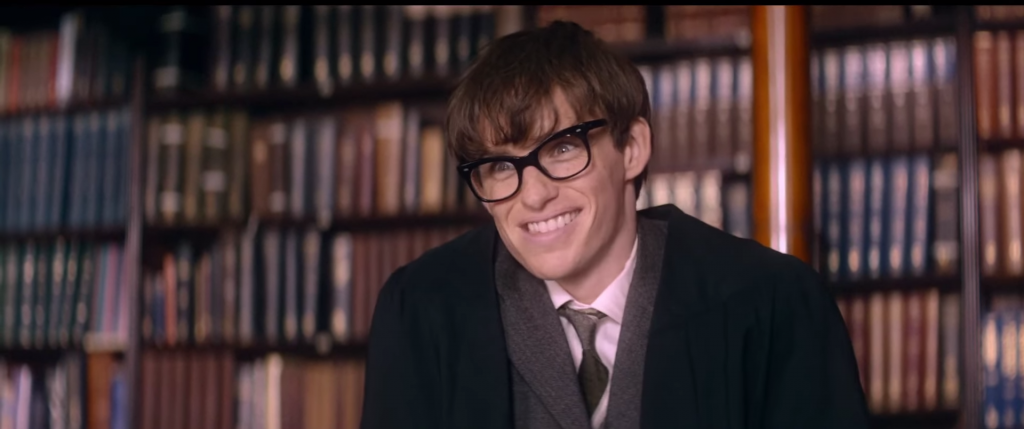Staff writer Jonathan Raeder attended the Washington premiere for The Theory of Everything. His review of the film is below, and his red carpet take is here.
Just watch the trailer for The Theory of Everything and it’s instantly evident that it’s that kind of movie. Released late in the year, based on the real life of a real person — in this case, physicist Stephen Hawking — featuring a lead performance constrained by physical and verbal limitations and oozing saccharine emotionality and drama — it’s an Oscar bid for sure.
The Theory of Everything fits all these requirements as if it was genetically engineered to win that golden statue — and it likely was. The film purports to be about one of the most famous scientists in history yet hand-waves most science as scribbling incomprehensible formulas on a chalkboard in a quick scene. It hits many of the standard tropes and plot marks of the usual Oscar winners and adds to its predictability with the knowledge that it’s all roughly based on a true story.
Yet for all these problems, The Theory of Everything is often moving and heartfelt.

Theory of Everything
Inspired by Jane Hawking’s memoir Travelling to Infinity: My Life with Stephen, this romantic, biographical film about the life of Stephen Hawking, the world-famous physicist stricken with ALS at a young age, begins with Hawking (Eddie Redmayne, Les Misérables) as a brilliant, young Cambridge scholar in the ’60s, who almost immediately meets and falls for a young Christian poetry student named Jane (Felicity Jones, The Amazing Spider-Man 2).

Theory of Everything
The main strength of the film comes from the two lead performances. Redmayne is quite effective in this role, especially given that most of the film takes place when Hawking’s ALS has already progressed to a staggering degree. When he can talk at all in this state, his voice is slurred, with his incomprehensibility increasing until only his wife understands him, and he eventually loses all ability to speak. The heart of Redmayne’s performance lies in his physicality, as he curls his hands into gnarled positions and conveys the strongest emotions while his head is slumped and immovable. One later scene features Redmayne acting with pure facial expressions and no movement at all — it’s the most devastating moment of the whole film.
Though Redmayne doesn’t have the opportunity to portray a pre-ALS Hawking often, he does thread a line of impish humor throughout the film, despite Hawking’s state of health.
Redmayne has spoken about how, after meeting Hawking in person, he realized how funny the man was. He became determined to show off that sense in the film. He succeeds admirably: Despite the dark subject matter, Hawking’s grim humor is a through line of the entire film.
Not to be outdone by Redmayne, Jones excellently portrays the shifting types of love between the pair, from young infatuation, passionate romance, heartbreaking strength, perpetual caretaking and eventually long-term friendship. The Theory of Everything stays true to Jane Hawking’s memoir, and the film showcases how integral she was to Hawking’s life.

Theory of Everything
However, despite these great performances, The Theory of Everything falls short of real greatness. It follows the standard trajectory of biopic films and is, in a way, a rather tame version of this true story. Its adherence to love story tropes keeps it down as well — it literally begins with a meet-cute between the two protagonists. It doesn’t need to go too deeply into the science of Hawking’s theories, but it doesn’t go far enough, resulting in some pseudo-scientific monologues that don’t stick in memory and don’t come close to the richness of reality.
The Theory of Everything will almost definitely be a contender in the Oscars race, and while it’s a solidly good film anchored by two brilliant performances, it doesn’t deserve the glut of awards it might win. It’s definitely a good film, but not a great one, and it doesn’t deserve to take these awards from other, better films of the year. You might cry at the end, but you won’t remember it for too long.







